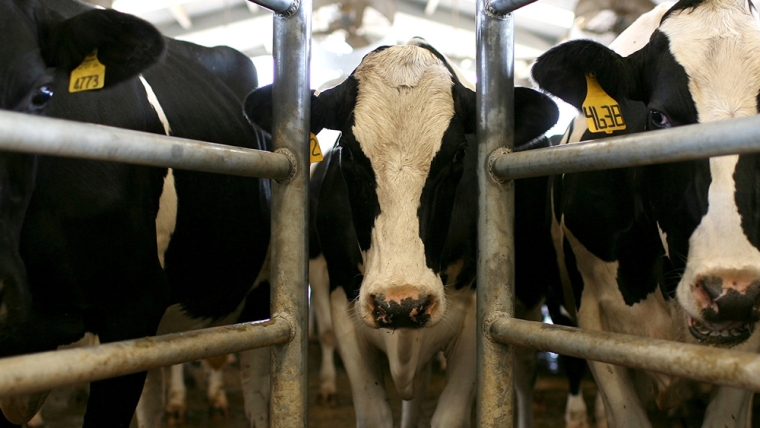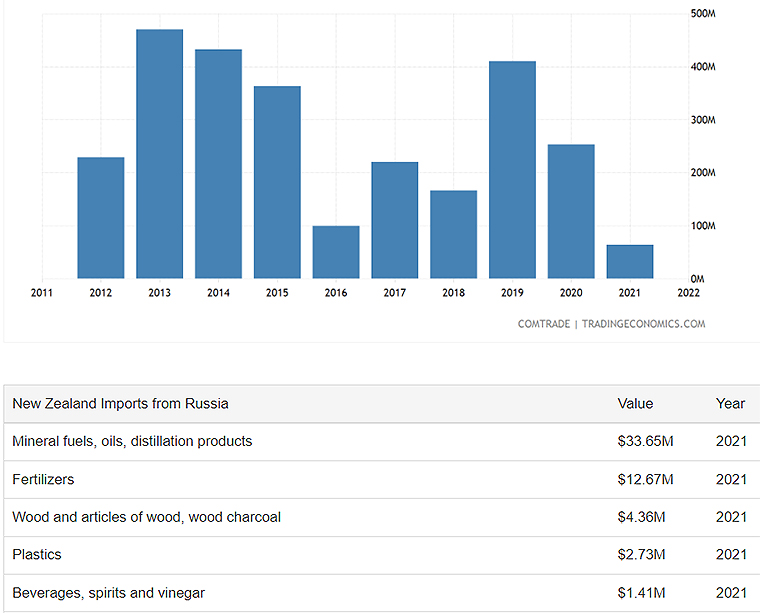
It won’t have come as a surprise the news that Fonterra is stopping dairy exports to Russia. These only come to 1% of total income. It has been in the form of butter and the trade has been operating for about 40 years Fonterra CEO Mile Hurrell said. Given that the Russian office is also being closed and staff being re-deployed Fonterra look as though they are not expecting to be back there in the foreseeable future.
The latest relationship with Russia had been set up with UniFood and had 7 staff in Moscow and 35 in the UniFood base in St Petersburg.
At the time of setting up the relationship had looked promising although a Federated Farmers leader made the comment at the time that while agreeing with the move, he hoped due diligence had been done given the “risks around the political landscape” in the region. The other potential exposure Fonterra has in the region is a joint venture with Lithuanian dairy company Rokiskio Suris. The investment at the time was NZ$11. 7million, so not a huge risk.
Imports from Russia have declined over the last 3 years, but it is the impact upon other countries energy imports that is having the greatest impact upon trade. Total exports to Russia in 2019 were NZ$293 mln largely made up of dairy products.

Another tactical withdrawal of Fonterra is the cessation of the 50-50 joint venture in India with the Dreamery Brand, also set up in 2018. In this case Covid-19 disruptions are cited as the major reason.
Given we are hopeful of the “light at the end of the tunnel” getting closer the timing seems a little surprising, although there are likely to be another 12 months of uncertainty. Fonterra's Asia Pacific chief executive, Judith Swales said, “We will continue to have a presence in India through Anchor Food Professionals and our Ingredients business and will explore opportunities to grow access for our New Zealand milk as they come up” and “India was a large dairy consuming population but there was restrictive trade access for New Zealand dairy.”
This was the second time Fonterra had tried its hand in the Indian market and ended up withdrawing. An eight-year partnership with Bangalore-based Britannia Industries ended in 2009.
Fortunately, both of the latest withdrawals have not involved large amounts of capital investment. They also show just how fraught establishing new markets internationally can be, especially in areas with questionable government processes.
Closer to home the Federated Farmers “Farmer Confidence Survey” has been recently published. This was completed back in January and so prior to the Russian invasion of Ukraine although the rumbles were certainly being heard, also the Omicron surge was yet to be felt. However, the impacts of higher inflationary pressures were starting to be felt. Despite the record high product levels over many products (Wool and Venison the notable exceptions) the confidence levels are at the lowest levels since 2009.
Looking forward, a net 64 percent of farmers believed general economic conditions would worsen over the next 12 months, a 25-point deterioration from the 39 percent in the July survey. Sentiment about general economic conditions is at the lowest level since the Feds surveys began in July 2009, surpassing the previous low in July 2020.
Asked to list their greatest concerns, those farmers who completed the January survey chose climate change policy and ETS (18.7% of respondents), followed by regulation and compliance costs (13.1%), and freshwater policy (9.5%). This result is unchanged from the July 2021 survey.
Head of Federated Farmers, Andrew Hoggard said he was surprised at the degree of the drop given the high prices and said "I suspect the global economy will be right up there if the survey were done right now,". The survey showed a net 52.7 percent of respondents expected their spending to increase over the next 12 months (up from 32.6% six months ago) "but this will be due to higher expected input costs rather than farmers feeling confident to spend and invest".
Given the events that have taken place since the January survey with the Ukraine war and the resulting impact upon global trade and fuel prices and the increasing impact upon inflation can only drive confidence even lower. Climate events have also ratcheted up since then and are keeping to the forefront of farmer thinking and planning.
The three highest priorities respondent farmers wanted the Government to address were the economy and business environment (15.0%), fiscal policy (12.1%) and regulation and compliance costs (11.7%). This compares to the July 2021 survey when the top three priorities were regulation and compliance costs (14.0%), economy and business environment (13.1%), and supporting agriculture and exporters (10.4%).
The survey is conducted twice annually with the next one to take place in June and likely publication date in August.
P2 Steer
Select chart tabs
3 Comments
Russia is likely to take any IP and facilities which Fonterra has left there.....and as the City Journal article notes, will be a strong Asian and ME competitor, perhaps in the very markets that F is hoping to tap...
I wonder how much impact the swift ban, had on this decision? It's a tricky situation, personally I don't have any issue with Russians eating NZ butter but I guess some people do. Fonterra is starting to look like an unreliable business partner, it's not going to help with future deals, hopefully the big brains in Fonterra have weighed those costs though it's hard to see much benefit from this decision.
Not surprised by the pullout from Russia. With it being mostly butter and butter being in high demand in other probably better paying markets it was a no brainer.
I would have thought more would be worried about economic problems rather than policy/regulations. As a contract milker we negotiated a 12% rate rise for the current season, we will likey make the same net profit as the previous year on the same production. Policy and regs I can work through with frustration. Inflation just rips the guts out. Infact any contract milkers out there who didn't get a rate rise will be well behind the eight ball by June.
Variable order sharemilkers on the other had will be grinning.

We welcome your comments below. If you are not already registered, please register to comment
Remember we welcome robust, respectful and insightful debate. We don't welcome abusive or defamatory comments and will de-register those repeatedly making such comments. Our current comment policy is here.